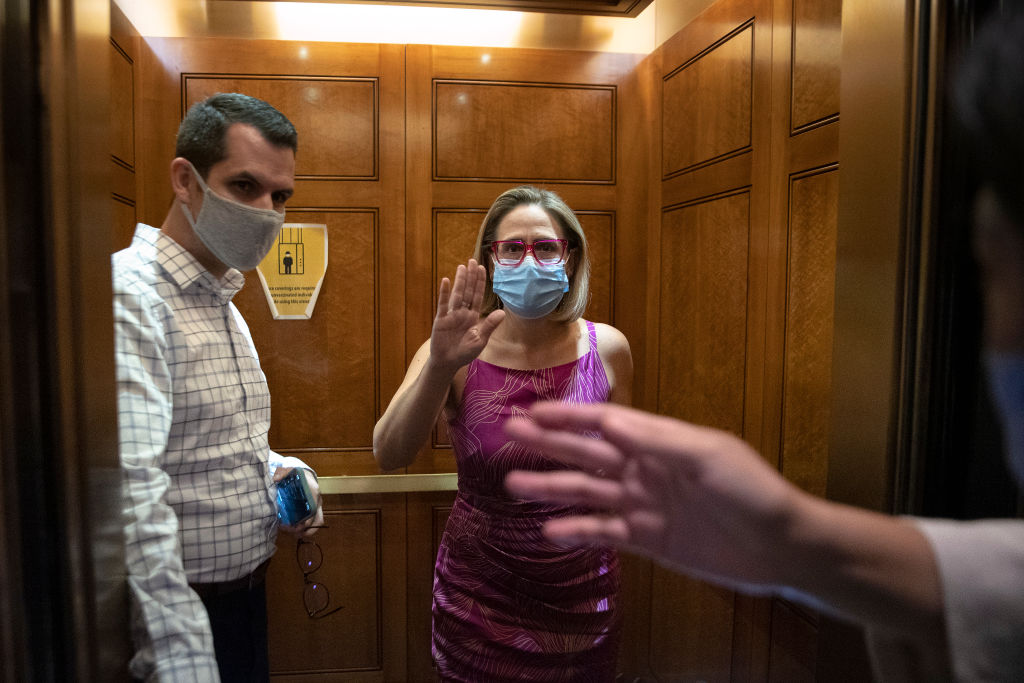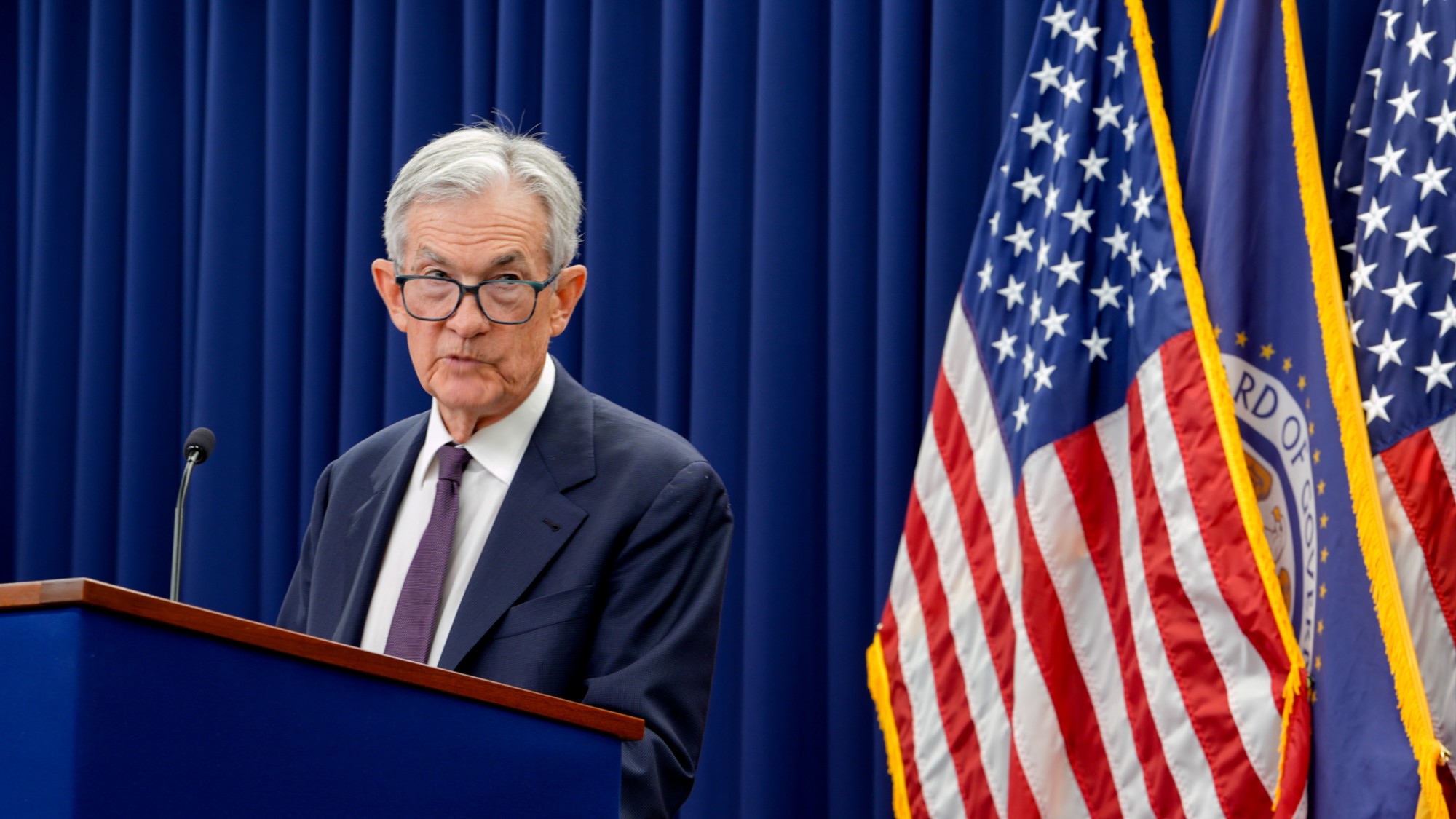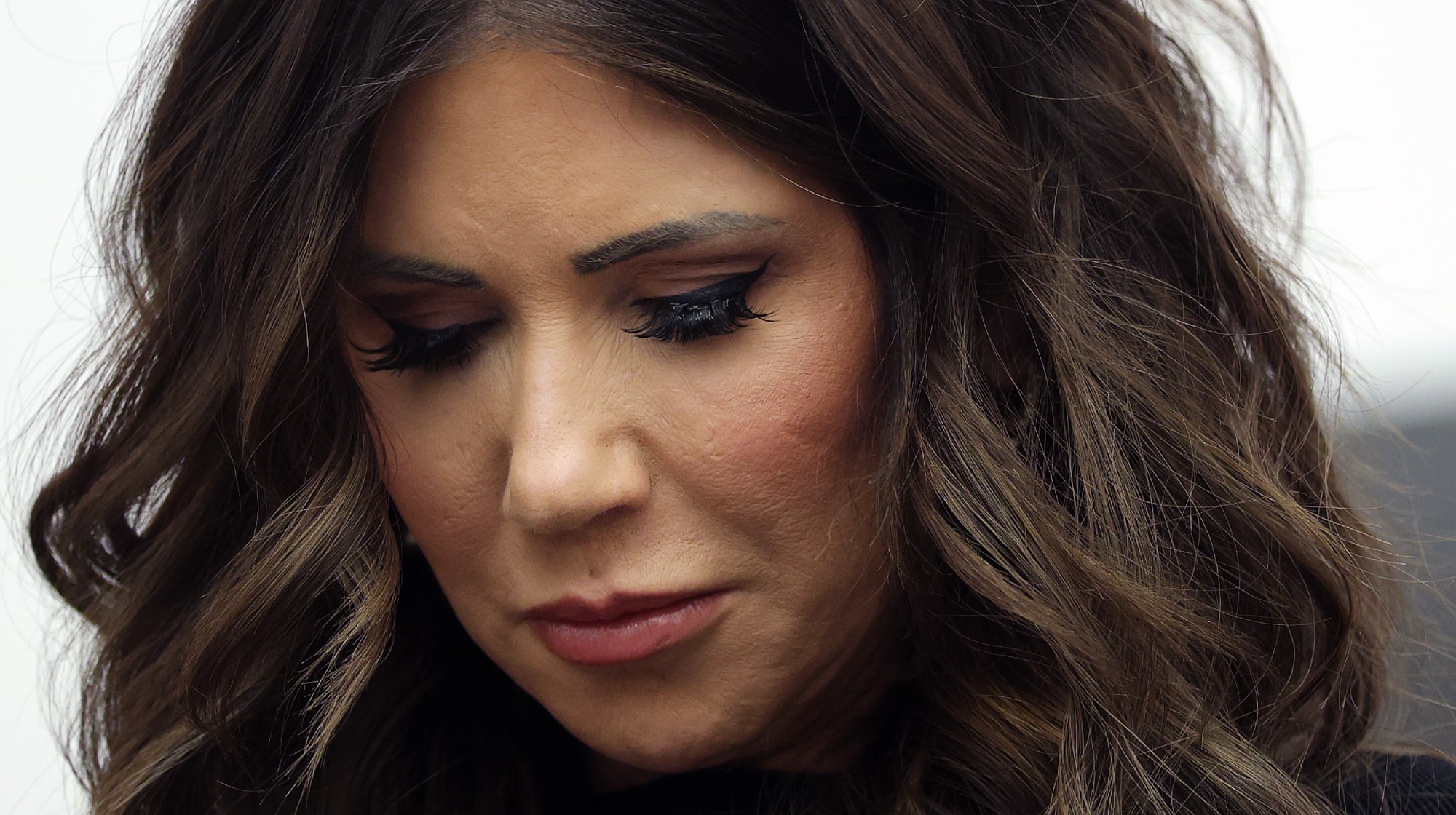3 reasons Democrats may not be able to pass their broadly popular reconciliation bill


President Biden poured a ton of time and effort Tuesday into figuring out what Sens. Joe Manchin (D-W.Va.) and Kyrsten Sinema (D-Ariz.) — or "Manchinema," as Politico dubs them — would be willing to commit to on the Democrats' $3.5 trillion budget reconciliation package. That's what the White House views as the key to preventing the legislative and political implosion that could start destroying Biden's domestic agenda starting Thursday, Politico's Playbook reports. "The public evidence" and "conventional wisdom" point to everything "sputtering toward a crash."
The White House says if Manchin and Sinema commit to a framework for passing the reconciliation package, Biden can convince House progressives not to tank the bipartisan infrastructure bill Manchin and Sinema helped negotiate. "Democrats close to the White House tell us that Biden has been bullish on landing Manchin but has found Sinema more frustrating and difficult to nail down on precisely what it would take to win her support," Politico reports.
A senior White House official told Politico there was "lots of progress" Tuesday but it "may not get gone," adding "We'll know in 24 hours." Rep. Emanuel Cleaver (D-Mo.) said he warned colleagues that "if we fail, Joe Biden and his administration is in jeopardy because he campaigned on this and people voted for him."
The Week
Escape your echo chamber. Get the facts behind the news, plus analysis from multiple perspectives.

Sign up for The Week's Free Newsletters
From our morning news briefing to a weekly Good News Newsletter, get the best of The Week delivered directly to your inbox.
From our morning news briefing to a weekly Good News Newsletter, get the best of The Week delivered directly to your inbox.
The biggest reason Democrats might fail this week, then, is that "Manchinema" doesn't care enough if Biden's agenda fails and Democrats look shambolic and unable to govern. But there are two more reasons, David Leonhardt and Ian Prasad Philbrick write in The New York Times.
First, "well-financed, well-organized lobbying groups strongly oppose some of the bill's major provisions," like raising taxes on the wealthy, expanding Medicare, and lowering drug prices, Leonhardt and Philbrick write. Sinema, for example, had plans to attend a fundraiser hosted by business lobbyists opposed to the bill. "But there is also a more subtle dynamic at work," where lawmakers mistakenly view the "median voter" as socially liberal and fiscally conservative, while the opposite is true.
"Many centrist Democrats are aware of this reality and cast themselves as culturally moderate populists," but Manchin and Sinema are doing the opposite here, Leonhardt and Philbrick argue. The upshot is that "the Democratic Party has an opportunity to pass a set of policies that are popular with their base, swing voters, and even some Republicans. Instead, the party may fail to do so."
A free daily email with the biggest news stories of the day – and the best features from TheWeek.com
Peter has worked as a news and culture writer and editor at The Week since the site's launch in 2008. He covers politics, world affairs, religion and cultural currents. His journalism career began as a copy editor at a financial newswire and has included editorial positions at The New York Times Magazine, Facts on File, and Oregon State University.
-
 High Court action over Cape Verde tourist deaths
High Court action over Cape Verde tourist deathsThe Explainer Holidaymakers sue TUI after gastric illness outbreaks linked to six British deaths
-
 The battle over the Irish language in Northern Ireland
The battle over the Irish language in Northern IrelandUnder the Radar Popularity is soaring across Northern Ireland, but dual-language sign policies agitate division as unionists accuse nationalists of cultural erosion
-
 Villa Treville Positano: a glamorous sanctuary on the Amalfi Coast
Villa Treville Positano: a glamorous sanctuary on the Amalfi CoastThe Week Recommends Franco Zeffirelli’s former private estate is now one of Italy’s most exclusive hotels
-
 Democrats win House race, flip Texas Senate seat
Democrats win House race, flip Texas Senate seatSpeed Read Christian Menefee won the special election for an open House seat in the Houston area
-
 Trump sues IRS for $10B over tax record leaks
Trump sues IRS for $10B over tax record leaksSpeed Read The president is claiming ‘reputational and financial harm’ from leaks of his tax information between 2018 and 2020
-
 Trump, Senate Democrats reach DHS funding deal
Trump, Senate Democrats reach DHS funding dealSpeed Read The deal will fund most of the government through September and the Department of Homeland Security for two weeks
-
 Fed holds rates steady, bucking Trump pressure
Fed holds rates steady, bucking Trump pressureSpeed Read The Federal Reserve voted to keep its benchmark interest rate unchanged
-
 Judge slams ICE violations amid growing backlash
Judge slams ICE violations amid growing backlashSpeed Read ‘ICE is not a law unto itself,’ said a federal judge after the agency violated at least 96 court orders
-
 Rep. Ilhan Omar attacked with unknown liquid
Rep. Ilhan Omar attacked with unknown liquidSpeed Read This ‘small agitator isn’t going to intimidate me from doing my work’
-
 Democrats pledge Noem impeachment if not fired
Democrats pledge Noem impeachment if not firedSpeed Read Trump is publicly defending the Homeland Security secretary
-
 Is Alex Pretti shooting a turning point for Trump?
Is Alex Pretti shooting a turning point for Trump?Today’s Big Question Death of nurse at the hands of Ice officers could be ‘crucial’ moment for America
